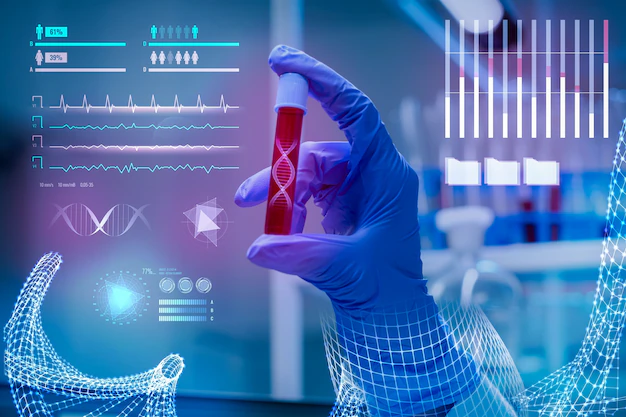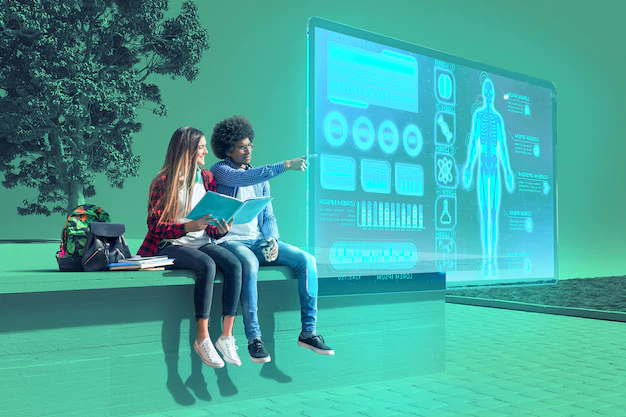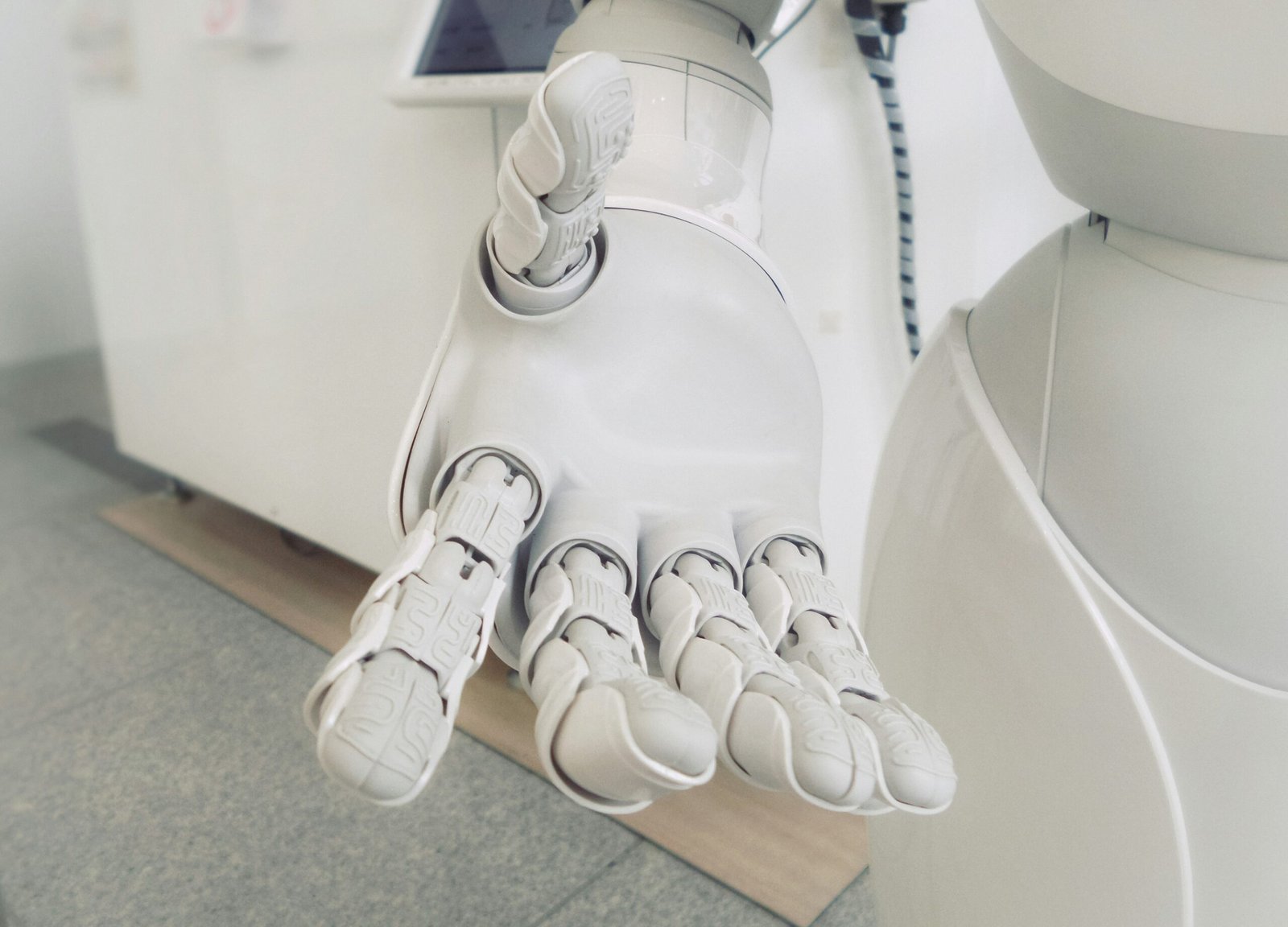AI in Healthcare: Transforming Patient Care

AI in Healthcare: Transforming Patient Care is more than just a buzzword; it’s a reality that is revolutionizing the way healthcare is delivered. Artificial Intelligence (AI) is reshaping the medical landscape, bringing about significant improvements in patient care, diagnosis, treatment, and overall health care management. In this comprehensive article, we will delve deep into the various facets of AI’s role in healthcare, exploring how it is changing the game for both patients and healthcare professionals.
The Promise of AI in Healthcare
AI in Health care holds immense promise, and it’s not just hype. It’s a game-changer that is enhancing the efficiency and effectiveness of healthcare systems worldwide. Here’s how:
1. Early Disease Detection
AI-powered algorithms analyze vast amounts of patient data, enabling early detection of diseases. This proactive approach can significantly improve patient outcomes.
2. Personalized Treatment Plans
With AI, health care providers can tailor treatment plans based on individual patient data. This personalization increases the likelihood of successful treatment.
3. Streamlined Administrative Tasks
Administrative tasks can be time-consuming for healthcare professionals. AI automates these tasks, allowing them to focus more on patient care.
4. Drug Discovery
AI expedites drug discovery by analyzing genetic data and predicting potential drug candidates, leading to faster development of life-saving medications.
5. Telemedicine and Remote Monitoring
AI facilitates telemedicine and remote monitoring, making healthcare more accessible to those in remote areas and enhancing patient engagement.
6. Predictive Analytics
Predictive analytics powered by AI helps hospitals forecast patient admission rates, optimize resource allocation, and reduce operational costs.

The Role of AI in Diagnostics
One of the most significant impacts of AI in healthcare is its role in diagnostics. AI algorithms can analyze medical images, such as X-rays, MRIs, and CT scans, with remarkable accuracy. This not only speeds up the diagnostic process but also reduces the chances of misdiagnosis.
AI in Treatment Planning
AI’s ability to process vast amounts of medical data helps in devising comprehensive treatment plans. By considering a patient’s medical history, genetic makeup, and current condition, AI can recommend the most suitable treatment options, minimizing trial-and-error approaches.
Enhancing Patient Care with AI
7. Virtual Health Assistants
AI-powered virtual assistants are available 24/7 to answer patient queries, provide medication reminders, and offer healthcare guidance.
8. Improved Patient Engagement
AI tools can send personalized health tips, motivate patients to adhere to their treatment plans, and keep them engaged in their healthcare journey.
AI in Surgery
AI-driven robotic surgery systems have elevated the precision and safety of surgical procedures. These systems assist surgeons in performing intricate surgeries with minimal invasiveness.
Ensuring Data Security
As health care increasingly relies on digital records, AI plays a crucial role in safeguarding patient data. AI algorithms can detect anomalies and potential security breaches, ensuring patient privacy.
Challenges and Ethical Considerations
While AI in Health care offers numerous benefits, it comes with its set of challenges and ethical considerations:
9. Data Privacy
The extensive collection of patient data raises concerns about data privacy and security breaches.
10. Job Displacement
The automation of administrative tasks could lead to job displacement for some healthcare workers.
11. Bias in Algorithms
AI algorithms are only as good as the data they are trained on. Biased data can result in biased decisions.
12. Regulatory Compliance
The healthcare industry needs to adapt to evolving regulations regarding AI usage, adding complexity to implementation.

Frequently Asked Questions
How does AI impact patient care?
AI in Healthcare positively impacts patient care by enabling early disease detection, personalizing treatment plans, and enhancing patient engagement.
Are there any ethical concerns associated with AI in health care?
Yes, there are ethical concerns, including data privacy, job displacement, bias in algorithms, and regulatory compliance.
Can AI replace health care professionals?
AI can automate administrative tasks, but it cannot replace the expertise and empathy of healthcare professionals.
Is AI in health care safe?
AI in health care is safe when implemented with robust security measures to protect patient data.
How does AI assist in surgery?
AI-driven robotic surgery systems enhance surgical precision and safety, assisting surgeons in complex procedures.
What role does AI play in drug discovery?
AI expedites drug discovery by analyzing genetic data and predicting potential drug candidates, speeding up the development of medications.
Conclusion
AI in Health care: Transforming Patient Care is a remarkable journey towards improving health care outcomes, patient experiences, and the overall efficiency of the healthcare system. While challenges and ethical considerations exist, the potential benefits are undeniable. As AI continues to evolve and integrate into healthcare, we can expect even more groundbreaking advancements in patient care.
So, embrace the future of healthcare, where AI is not just a technology but a trusted partner in your well-being.
============================================
Unleashing the Power: How AI is Revolutionizing Industries
भगवद गीता: आध्यात्मिक ज्ञान का अद्भुत संग्रह
अमॉक्सिसिलिन/Amoxicillin: आपके स्वास्थ्य की देखभाल की एक अद्वितीय कहानी








